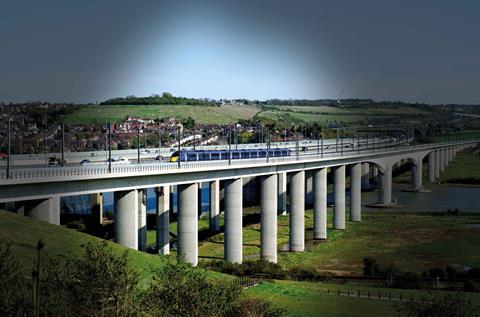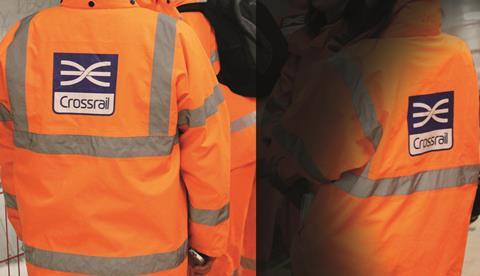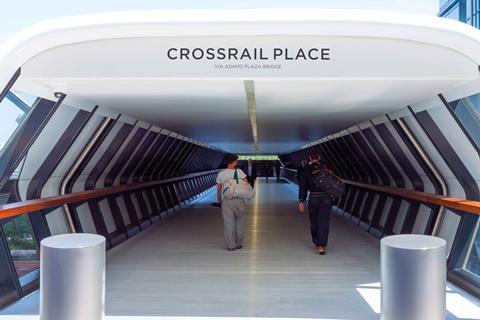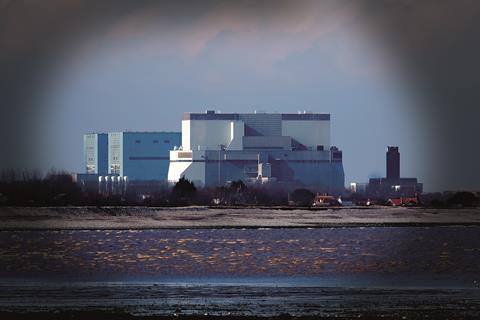Crossrail, Hinkley Point and HS2 would all make great subjects for a soap opera ÔÇô and there are more cliffhangers to come. Then thereÔÇÖs the Westminster saga, with its ÔÇťseason finaleÔÇŁ election next month. Jordan Marshall asks what this means for future infrastructure work and the companies that bid for it

Infrastructure has become something of a dirty word in recent months, with big-name projects HS2, Crossrail and Hinkley Point C causing headaches for the government and construction industry alike. HS2 is now expected to be years late and tens of billions of pounds over budget, assuming it goes ahead, while Crossrail is going to need even more cash and will not open next year. Hinkley Point has bust its budget by billions ÔÇô and the fact that the nuclear power station is privately funded is both a blessing and a curse for government, which increasingly wants to attract private investors to fund projects such as Crossrail 2 and the expansion of Heathrow.
These well-publicised setbacks come as the industry and the general public are looking for decisions to be made on other high-profile schemes such as Heathrow and Northern Powerhouse Rail ÔÇô and longing for an end to the political uncertainty of the past three years.
Despite these headwinds, the sector feels there is cross-party acknowledgment that further commitment to infrastructure is needed, with several policy areas and sub-sectors expected to boom in the short to medium term.
David Whysall, managing director of UK infrastructure at Turner & Townsend, says: ÔÇťThe fact is, in the face of Brexit we need to be globally competitive and to do that we have to have competitive infrastructure. Each of the political parties will play into that.ÔÇŁ
So, which projects could be the next big clients? And what opportunities and challenges does the infrastructure sector face?

No commitment
Despite positive murmurings from both major parties in the lead-up to next monthÔÇÖs election, the lack of a secure commitment to HS2 and Heathrow, and the delay to the new National Infrastructure Strategy, are probably the biggest challenge facing the sector. As Turner & TownsendÔÇÖs Whysall says, the Westminster drama is creating ÔÇťuncertainty in the strategies that underpin investment in infrastructureÔÇŁ.
It is not the only hurdle, however. Skills are a concern too, according to Mike McNicholas, infrastructure managing director at Atkins. ÔÇťRapidly upskilling our workforce to drive digital innovation and respond to increasing demands for low-carbon solutions that present social and economic value is a challenge,ÔÇŁ he says.
ÔÇťSometimes large infrastructure schemes are remote, which makes it difficult for everybody to play a part. We canÔÇÖt always move work to people, which means staff sometimes have to be agile to be part of these transformational projects.ÔÇŁ
For Simon Rawlinson, head of strategic research at Arcadis, the biggest test comes from the need to deliver schemes at best value. ÔÇťIt means we have to innovate at rapid speed to develop more cost-effective ways of designing and delivering infrastructure,ÔÇŁ he says.
Rawlinson also points to the fact that infrastructure requires construction ÔÇô a traditionally siloed industry ÔÇô to work collaboratively on large-scale schemes. Firms need to work with supply chain partners, he says, to develop designs that enable cost and time-effective management of delivery risks. He cites the lack of an investigation into ground conditions at HS2, which the projectÔÇÖs chair Allan Cook has blamed for ballooning costs.
HS2: billions of pounds up for grabs
Recent press reports suggest Doug OakerveeÔÇÖs independent review of HS2 has found in favour of going ahead with the scheme, which according to one recent estimate will cost ┬ú103bn (the original budget was ┬ú30bn). ArcadisÔÇÖ Rawlinson says the high speed line will have the biggest individual impact of any project over the next year. ÔÇťFrom a design and engineering perspective, if HS2 gets the go-ahead, it will create the greatest workload.ÔÇŁ
The railway halted the procurement of a £435m contract to build a station at Birmingham Curzon Street in July because of concerns about risk. That scheme remains to be retendered, though a timeline has yet to be confirmed.
HS2 is also set to restart the procurement process for the deals to build the overhead catenary system for phases 1 and 2a, and the entire track for phases 1 and 2b ÔÇô work worth ┬ú1.5bn in total. In addition, the vast majority of contracts for the northern phases of the line are yet to be procured, meaning there is billions of pounds of work still up for grabs.

Network Rail: a secure pipeline of work
Network Rail plans to spend ┬ú35bn before 2024, making it one of the countryÔÇÖs biggest infrastructure clients. As a result, McNicholas, Rawlinson and Whysall all highlight rail as one of the most secure pipelines of work over the coming years. In fact, Rawlinson says Network RailÔÇÖs five-year plan helps counterbalance the delay to the comprehensive spending review ÔÇô and the consequent delay to the National Infrastructure Strategy, which will cover the years to 2050.
The rail delivery plan for control period six, which runs from this year to 2024, includes £31bn of spending in England and Wales and £4bn in Scotland. Of the £31bn, about £22bn will be spent on renewals and maintenance.
The projects are spread across the country and include the ┬ú350m modernisation of the Anglia regionÔÇÖs three signalling systems in Cambridge, Clacton and on the North London line, and the renewal of the roof at Liverpool Street station in London. In Wales, the programme includes the ┬ú22m renewal of the grade II-listed Barmouth Viaduct, which will provide a link for passengers travelling across mid and north-west Wales.
Highways England: a £25bn plan
ÔÇťHighways England has some big opportunities coming up,ÔÇŁ says Rawlinson, pointing to early-stage plans to upgrade the A303 and the A66. The government-owned company is expecting to invest more than ┬ú3bn in EnglandÔÇÖs road network in 2019/20, while draft plans for the next road investment strategy (RIS2) estimate that ┬ú25bn will be invested from 2020 to 2025.
The Department for Transport was due to publish the final RIS2 plan late this year, but the election has halted government announcements. It is not known when the plan will be confirmed.
Despite this, Turner & TownsendÔÇÖs Whysall says he expects Highways England to be one of the biggest infrastructure clients in the next one to three years. Rawlinson also says the fact that Highways England will have a new five-year plan adds certainty to the infrastructure pipeline.
The projects explored in the research phase of the RIS2 include the Northern Trans-Pennine, which covers the A66 and A69 corridors, and a Trans-Pennine tunnel from Manchester to Sheffield. Highways England is also considering improvements to the M60 north-west of Manchester and the A1 in the east of England. Atkins was appointed to advise on the A1 project earlier this year. Analysis of the potential Oxford-Cambridge expressway has also been factored into the planning of the RIS2.

Devolution: power to the regions
Although the National Infrastructure Strategy has yet to be confirmed, the assessment it will be based on has called for £43bn of stable long-term transport funding for regional UK cities. And this is just the beginning of the regional push.
ÔÇťDevolution in the regions is also giving us lots to think about in regard to the investment we make in skills, training and technology,ÔÇŁ says AtkinsÔÇÖ McNicholas. ÔÇťThe debate between central and local government has a bearing on decision making and priority projects.ÔÇŁ
This is echoed by Whysall of Turner & Townsend, who says the impact of greater devolution on infrastructure policy is an issue to watch. ÔÇťIt will allow the regions to come up with plans for what will help the local community best,ÔÇŁ he says. ÔÇťOften the problem with progressing infrastructure projects is the large number of stakeholders ÔÇô devolution brings a lot of those stakeholders together.ÔÇŁ
Other areas of opportunity
Energy: ÔÇťEnergy will be a massive area,ÔÇŁ says Turner & TownsendÔÇÖs David Whysall. ÔÇťI do worry about the governmentÔÇÖs ability to finalise its strategy, so I think itÔÇÖs more for the next five years.ÔÇŁ Energy infrastructure investment is set to be a great source of work, he adds.
Exports: ÔÇťThe opportunity to export UK industryÔÇÖs expertise is huge,ÔÇŁ says Whysall, ÔÇťand is something the government has been working on.ÔÇŁ The Department for International Trade built a team to support construction of venues and infrastructure for the 2019 Pan American Games, in Lima, Peru. Arup and Mace were on the team.
Digitalisation: ArcadisÔÇÖ Rawlinson believes the infrastructure sector is helping to drive digitalisation. ÔÇťInfrastructure clients are very demanding to work for, but are some of the most forward-thinking organisations,ÔÇŁ he says.



























No comments yet